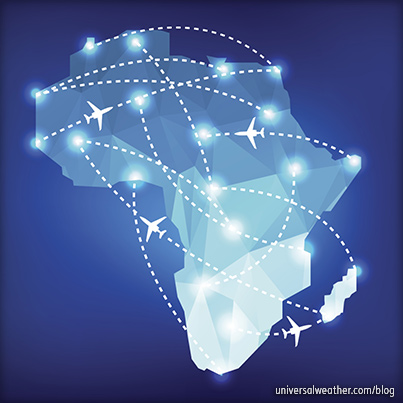The African Union Commission (AUC), working with the African Civil Aviation Commission (AFCAC) and the AU member states, is presenting eight African countries as candidates for election to the International Civil Aviation Organisation (ICAO) Council.
The ICAO Assembly, taking place in Montreal from 23 September to 3 October, brings together 193 member states to set global aviation policy, adopt new standards, and elect the ICAO Council of 36 states, a body that governs international civil aviation between Assembly sessions.
Under the theme “United for Greater Representation,” Africa is standing as one bloc, determined to secure stronger representation and advance its aviation priorities.
The candidates of the eight countries were endorsed by the 46th Ordinary Sessions of the African Union Executive Council, held earlier this year and reaffirmed by the 38th Ordinary Summit of the AU Assembly of Heads of State and Governments.
Speaking at the Africa Coordination Meeting before the Assembly opened, H.E. Lerato Mataboge, AU Commissioner for Infrastructure and Energy, reaffirmed the continent’s resolve, stating “The significance of Africa speaking with one voice cannot be overstated. When united, we transform our numerical strength into real influence; we move from fragmented positions to a powerful collective able to shape global decisions. This solidarity is not only about securing seats, but also about ensuring that Africa’s priorities, perspectives and aspirations set the global aviation agenda.”
“Africa is not only the fastest-growing aviation market, but also a critical partner for safe, sustainable, and inclusive air transport. This Assembly offers us a decisive opportunity to match our potential with stronger representation and ensure that our skies are governed with Africa’s interest at the table,” Mataboge added.
In line with this, Africa has put forward candidates in both Part II and Part III of the ICAO Council elections. In Part II, which covers States making the largest contribution to the provision of facilities for international civil air navigation, Africa is represented by Egypt, Nigeria and South Africa, while in Part III, which ensures equitable geographic representation, the candidates are Angola, Equatorial Guinea, Mali, Morocco and Uganda.
Florent Serge Dzota, President of AFCAC, echoed Mataboge’s call urging international partners to recognise Africa’s rapidly expanding aviation market as an indispensable part of global connectivity. He emphasised that Africa’s collective strength must be matched with stronger representation at the ICAO Council, underscoring that international decisions should fully reflect the realities and aspirations of the African skies.
The continent also tabled working papers that highlight broader strategic priorities, including the Single African Air Transport Market (SAATM), the AU’s flagship aviation initiative designed to advance open skies, boost connectivity, reduce costs and unlock new opportunities for trade and tourism.
According to the AU, when fully implemented the SAATM is projected to create over 150,000 new jobs and contribute more than US$4.5 billion to Africa’s GDP. Already, liberalisation under SAATM has led to the opening of 108 new routes between November 2022 and April 2025, many of which are reducing travel times, lowering costs, and enhancing direct connections between African cities.
Africa is also pressing for stronger regional accident investigation capacity and harmonised safety oversight frameworks, while reaffirming its support for Carbon Offsetting and Reduction Scheme for International Aviation (CORSIA), as the sole global measure to address emissions complemented by Africa’s continental Strategy on development and deployment of Sustainable Aviation Fuels (SAF) and Low Carbon Aviation Fuels (LCAF) endorsed by AU Summit in on February.
In addition, African States are emphasising aviation security and facilitation, calling for enhanced border data systems, training, and international cooperation.

